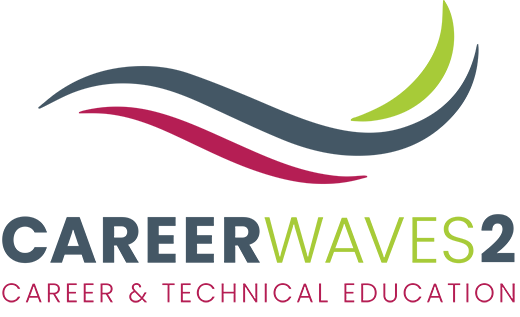How to Thrive at Work After a Major Medical Diagnosis was originally published on Firsthand.
For someone facing a major medical diagnosis, navigating their professional life while also receiving treatment can be daunting. Fortunately, there are many resources out there to help people strike an important balance between professional success and overall well-being. Vault recently spoke with Rebecca Nellis, Executive Director of Cancer and Careers—a nonprofit that educates and empowers people with cancer to thrive in their workplace.
Vault: Tell us about the work you do with Cancer and Careers.
Rebecca Nellis: While working at Cancer and Careers for the last 15 years (since 2004), I have seen the conversation about work and cancer elevated to new and exciting places. I've worked with thousands of healthcare professionals and employers on how to support the unique needs of cancer survivors in the workplace and spoken to diverse audiences across the country (over 150 presentations to date). I’ve also seen our organization's offerings expand to include a range of innovative programs like our Resume Review Service, Professional Development Micro-Grants—and annual conferences and workshops – ultimately reaching 400,000 individuals per year online, in print and in person.
Vault: Studies show that a growing number of Americans continue to work after a major medical diagnosis. Aside from financial necessity, what do you think are some of the most important factors in somebody's decision to work while receiving treatment?
RN: People consistently tell us that working during treatment helped them cope and aided in their treatment and recovery. In 2018, Cancer and Careers commissioned a Harris Poll survey to understand the experiences of U.S. cancer patients and survivors who were employed when diagnosed or unemployed but looking for work following their diagnosis. Sixty-four percent of respondents agreed that working through treatment helps or had helped them cope.
While needing health insurance and financial security are definitely reasons for working after a major medical diagnosis, other reasons include wanting to maintain a sense of normalcy and routine, wanting to feel productive, wanting a distraction from their diagnosis and to not feel isolated. Not to mention, work is often part of someone's identity, their sense of self and how they contribute to the world, so to suddenly be facing a serious health issue and also be told you have to give up a big piece what makes you, you is something that many people are not willing to do.
Vault: What is the first thing a person should do (as far as their job is concerned) after receiving a diagnosis?
RN: The first step is for the employee to gather some critical information about his/her diagnosis and treatment plan, the policies and benefits offered by his/her workplace and the legal protections he/she may be entitled to. Understanding details of the diagnosis, treatment plan, and possible side effects, specifically in light of how all of it could affect someone's work, is critical. The employee's healthcare team needs to know not just if work is a priority to him/her, but also what his/her specific position entails so they can best help him/her think through how to balance treatment and work.
Vault: At what point should someone disclose their diagnosis to their employer? Who should a person disclose to?
RN: Deciding whether (and when) to tell an employer and/or co-workers is a very personal decision and requires weighing several factors. Some people never choose to disclose at work. In order to figure out what works best, it is important for the employee to reflect on his/her personality at the office (are they someone who typically shares life news at work or someone who doesn't?) as well as workplace culture (do they work in a team-centered environment or one of mostly independent work? Have other people been supported through personal challenges?). This can help him/her determine how this news will be received, so they should trust their instincts. If the employee does decide to tell, it is likely he/she will share with those who will be instrumental in figuring out a workable solution (possibly a supervisor and/or HR). It's important to determine ahead of time how much detail to reveal. He/she should practice what to say to avoid unexpectedly divulging more than what he/she is comfortable with during a conversation at work.
Vault: How should someone who's recently been diagnosed navigate these conversations?
RN: Anticipating how people will react to a diagnosis is hard, and regardless of their reaction, it may not be the right one for the employee at that moment. Listing potential responses might make it easier to deal with whatever comes their way. There is a whole spectrum to consider – fear, discomfort, anxiety, pity, sympathy, love, support, etc. Hopefully, if a person does tell, it will be a relief and yield a tremendous amount of support. It's just helpful for the individual to prepare as much as possible for all types of reactions, comments, and questions.
If someone finds that co-workers are dwelling on their diagnosis instead of work-related topics, they should try a technique we refer to as “the swivel.” You can take a question like “How are you feeling today?” and swivel away from the cancer topic and back to work. “I'm good, thanks. While I have you, do you have time this week to go over the new expense reports?” The key is to acknowledge your colleague's comment and then swivel the conversation to a place where you feel comfortable and empowered. Help your co-workers see you how you want to be seen.
Vault: What are some unique challenges people working through treatment face in the workplace? How can employers be more accommodating of those challenges?
RN: There are many challenges a person might encounter if they decide to work during treatment. A common concern for people returning to their same job following a diagnosis or treatment is that they will be seen as the “sick person” in the office forever. People in the workplace might assume a person can't do his/her in the same capacity as he/she could prior to his/her diagnosis. An employee might worry he/she might not advance as quickly at his/her job or possibly even get fired. What we do know for a fact is that workplace challenges become easier when employees are equipped with the right knowledge, tools, and support from their employers.
Fortunately, there are various policies an employer can implement on a day-to-day basis to help an employee with a serious medical diagnosis. Flexible work policies, paid time off (PTO), leave banks, and other benefits are useful resources. It's beneficial for companies to take stock of their current policies to determine whether additional programs should be implemented.
Additionally, there are laws that can provide a framework of support like The Americans with Disabilities Act (ADA), which requires certain employers (private employers with 15 or more employees or state/local government of any size) to make “reasonable accommodations” to allow eligible employees to continue to perform the essential functions of their job. Reasonable accommodations are changes in the work environment (e.g. modifying schedules, making changes to physical workspaces, adjusting company policies, etc.) that help an eligible employee continue working during or after treatment.
Thinking through options for accommodations before speaking with an employer can help an employee feel more prepared for any conversations that become necessary. Also essential in this preparation is considering not only the individuals' needs and wants but those of their employer as well.
Vault: Is discrimination against people who are diagnosed with cancer a prevalent issue in the workplace? What are your rights as an employee, and how can you protect yourself from discrimination?
RN: We hear from people who are very worried that their cancer diagnosis will cause their workplace to treat them differently. We also certainly hear stories from people who believe that the things that happened to them at work after revealing a cancer diagnosis were discriminatory (from not getting put on high-profile client projects, to not getting overtime, to getting fired). We also know that nearly half (47%) of cancer patients and survivors fear that disclosing their cancer diagnosis will negatively affect their chances of getting hired (Cancer and Careers/Harris Poll 2018).
It can be difficult to determine if a person's medical history is being used against them because discrimination can be subtle, but sometimes there can be more blatant signs. If someone clearly less qualified is promoted than the employee with a medical issue, there might be cause to be suspicious. If disparaging comments are being made, that may be a sign of unfair treatment. If a person's assignments or projects are not as challenging as they were before his/her diagnosis, that also might be a sign. Ultimately, it's going to rest on the specifics of that person's experience and what proof they have to support the claim.
There are a number of laws that relate to cancer patients' rights, discrimination, and benefits. Federal laws such as the Americans with Disabilities Act (ADA), Family and Medical Leave Act (FMLA), Health Insurance Portability and Accountability Act (HIPAA), as well as certain state laws, may be applicable and can create a framework of support. State laws may also be applicable. The federal agencies overseeing each program provide online compliance guides that offer additional information for both employee and employer.





